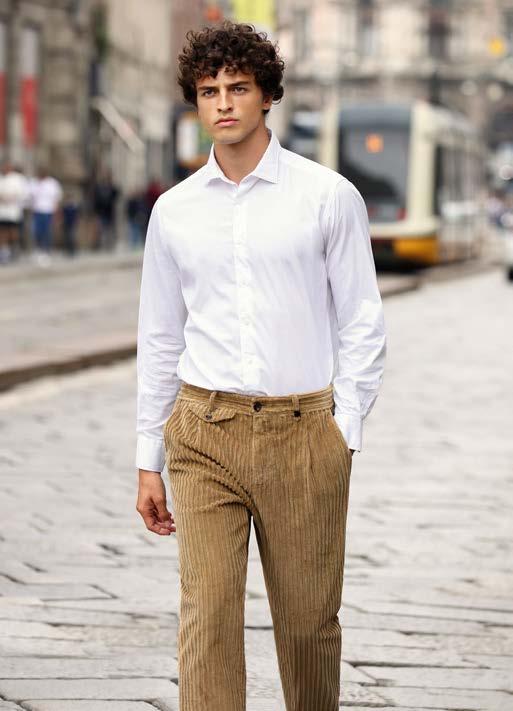WHAT’S THE STORY
Their commitment to sustainability is all-embracing: Mel and Dirk Nienaber have been working with a sustainability master plan since 2013. They strive to turn their brands Marlino, Silk Sisters, and Wunderfell into pioneers.
MARLINO GROUP
SUSTAINABILITY AS MASTER PLAN Not a mere marketing measure, but a matter close to the heart: Mel and Dirk Nienaber have been working tirelessly to make their brands – Marlino, Wunderfell, and Silk Sisters – more environmentally friendly and durable since 2013. Marlino Group’s path is exemplary. Text: Martina Müllner-Seybold. Photos: Marlino Group
“It is time for everyone in the fashion industry to realise that we are not going to survive the course we are on, and that it is high time we made a change.” Melanie and Dirk Nienaber have no qualms about facing their industry’s problems. They are able to do so, because Marlino Group did not start thinking about environmental aspects only when it became a marketing trend. On the contrary, the two have been working quietly but consistently on improving every single aspect of the production chain since 2013. Dirk Nienaber is convinced that “every department must be evaluated with regard to sustainability, and the economic aspect must subordinate itself to its ecological counter-
part.” However, implementing the necessary changes does not happen overnight. It requires long-term planning and consistent application. ENVIRONMENT > TURNOVER
For five years now, Wunderfell, Marlino, and Silk Sisters have been focusing on sustainable production instead of maximum value creation. Even bestsellers that were produced sustainably in China have been transferred back to European production sites. Instead of concentrating on earnings, the couple placed greater emphasis on fair and social wages, as well as better working conditions. Another important decision criterion is shorter distances – the transport route from Portugal and Spain creates a smaller CO2 footprint. Dirk Nienaber: “We avoid air freight. Materials and goods from the Far East – as far as not completely avoidable – are transported by train, not by container ship. There used to be a train shipment service from Portugal to Germany, but it has unfortunately been
discontinued due to inefficiency. One can only hope that the railway companies will offer this route again at some point.” A certain CO2 potential remains associated with materials such as silk, alpaca, or cashmere, all of which come from distant lands. “This means it is all the more important to ensure that the raw materials are obtained ecologically, and that the local population benefits too,” says Dirk Nienaber. In the case of Wunderfell and Marlino, the ecological challenge lies in the material itself: “For our lambskin products, we collaborate closely with producers on research into alternative tanning techniques. The challenge lies in industrialising the new environmentally friendly techniques,” says Dirk Nienaber. Sustainability is also inherent in the design aspect: Mel Nienaber attaches great importance to the fact that her designs follow the “Slow Fashion” principle. Overproduction is systematically avoided by only commissioning what has been ordered. Mel Nienaber is convinced: “You have to live sustainability, not merely talk about it.” style in progress
205






















































